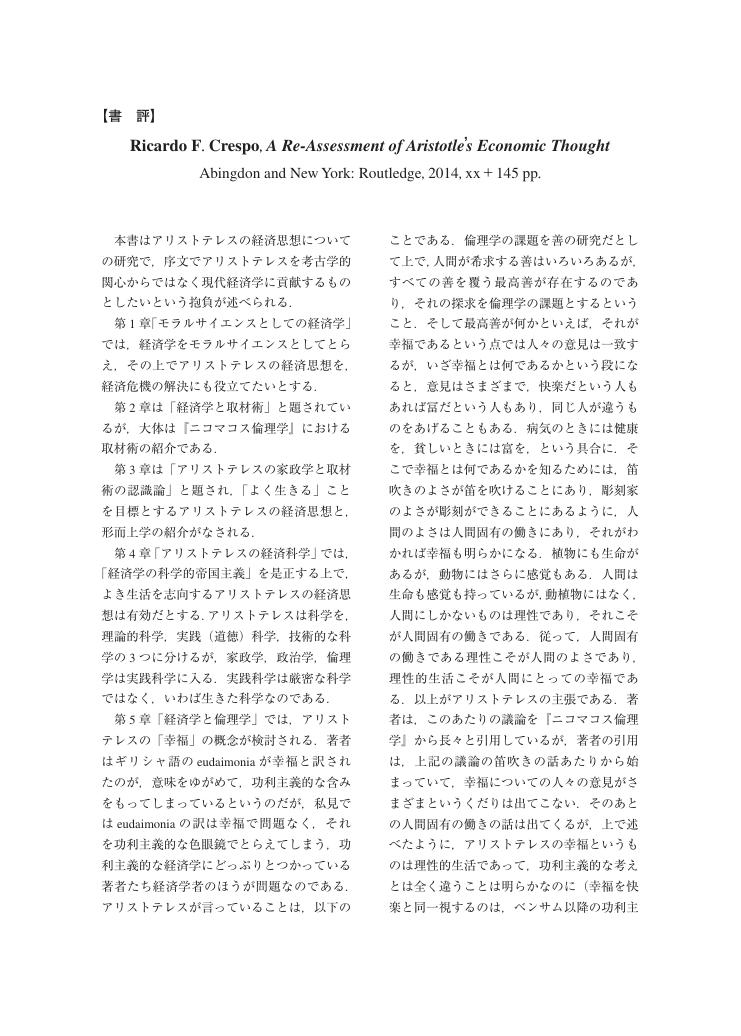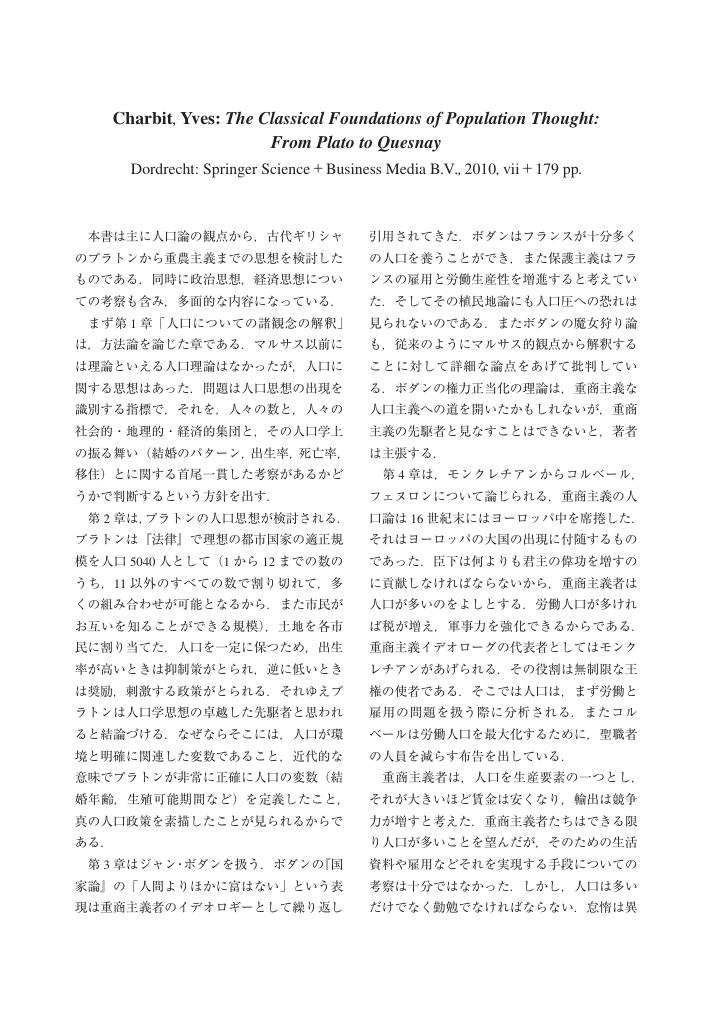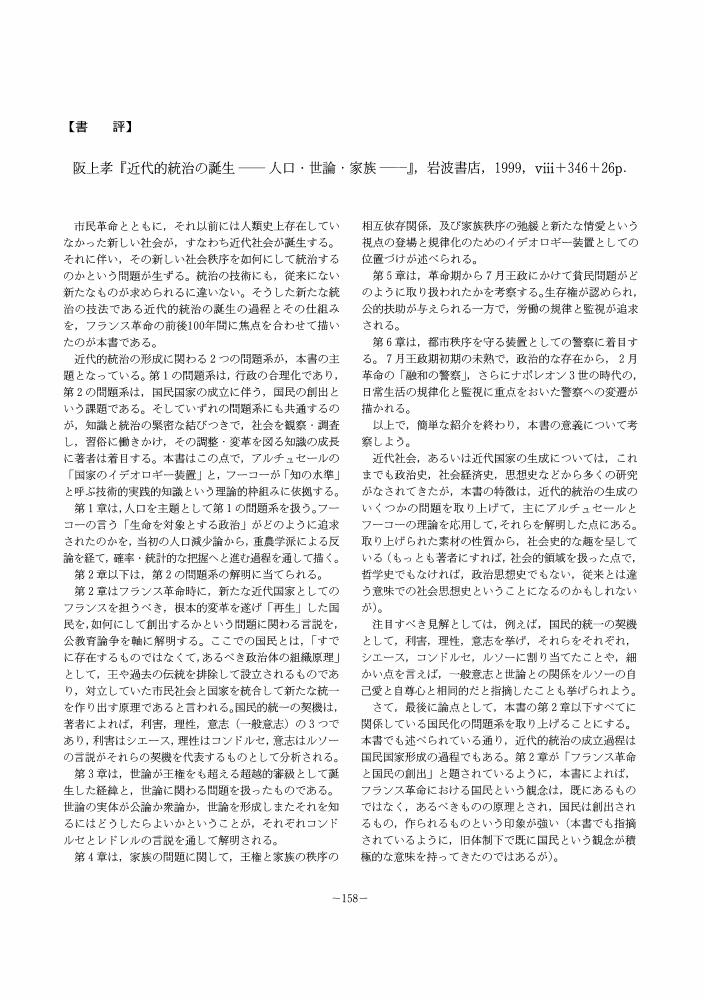2 0 0 0 プーフェンドルフの『義務論』一考
- 著者
- 森岡 邦泰
- 出版者
- 大阪商業大学商経学会
- 雑誌
- 大阪商業大学論集 (ISSN:02870959)
- 巻号頁・発行日
- vol.7, no.3, pp.89-100, 2012-01
1 0 0 0 OA 書評
1 0 0 0 OA 書評
- 著者
- 森岡 邦泰
- 出版者
- 経済学史学会
- 雑誌
- 経済学史研究 (ISSN:18803164)
- 巻号頁・発行日
- vol.56, no.2, pp.127-128, 2015 (Released:2019-11-30)
- 著者
- 森岡 邦泰
- 出版者
- The Japanease Society for the History of Economic Thought
- 雑誌
- 経済学史研究 (ISSN:18803164)
- 巻号頁・発行日
- vol.53, no.2, pp.108-109, 2012 (Released:2019-10-30)
- 著者
- 森岡 邦泰
- 出版者
- 経済学史学会
- 雑誌
- 経済学史学会年報 (ISSN:04534786)
- 巻号頁・発行日
- vol.41, no.41, pp.96-97, 2002 (Released:2010-08-05)
- 著者
- 森岡 邦泰
- 出版者
- 経済学史学会
- 雑誌
- 経済学史学会年報 (ISSN:04534786)
- 巻号頁・発行日
- vol.38, no.38, pp.158-159, 2000 (Released:2010-08-05)
1 0 0 0 OA トマス・アクィナスの経済論
- 著者
- 森岡 邦泰
- 出版者
- The Japanese Society for the History of Economic Thought
- 雑誌
- 経済学史学会年報 (ISSN:04534786)
- 巻号頁・発行日
- vol.31, no.31, pp.47-57, 1993 (Released:2010-08-05)
We have two interpretations about the concept of the just price of St. Thomas Aquinas: the one is a cost of production theory (objective value), in which production costs represented mainly or only wages just sufficient to allow producers or traders to live in a manner befitting their status in society, the other, utlity theory (subjective value) or a subjective nature of value determined by “usefulness”, in fact a market price.We adopt an anthropological aproach to the matters of medieval age and anlayse attentively the differences of Thomas' texts and Aristotle's original ones. As a result we have Thomas' model of society.According to his model, the cost of production theory is more sustainable in terms of products made by man, on the other hand we recognise a moment of subjective nature of value in terms of non-products, which however pertain to only his ontological hierarchy. In addition the nature of subjectivity is not that of utility in the modern sense, but necessity of community, which is typical of a traditional society. We conclude that the just price of Thomas is mainly founded on labour and costs and in the same time can be a market price in his model of society.
1 0 0 0 OA 自然と社会 - フランス啓蒙思想研究
1 0 0 0 IR アリストテレスの経済思想
- 著者
- 森岡 邦泰
- 出版者
- 学術雑誌目次速報データベース由来
- 雑誌
- 經濟論叢 (ISSN:00130273)
- 巻号頁・発行日
- vol.156, no.4, pp.123-140, 1995





